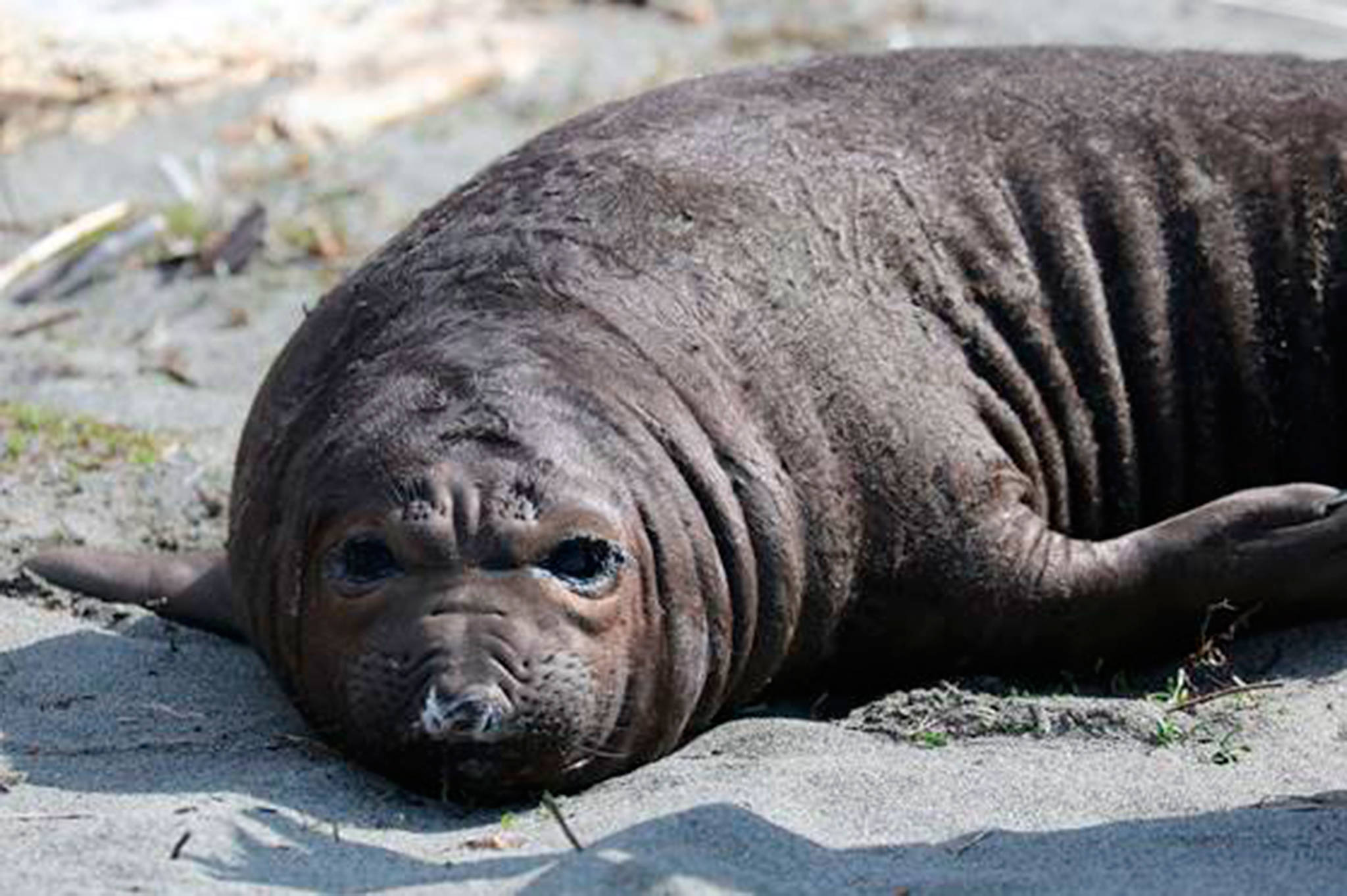Pupping season is in full swing for the seals that visit the shores of Whidbey Island.
The season started in June and lasts until August or early September, according to Sandra Dubpernell, coordinator of the Central Puget Sound Marine Mammal Stranding Network and board member of the Orca Network. She cautioned people not to touch the animals.
“We’ve gotten about two dozen reports” of seal pups on the island, Dubpernell said.
It’s illegal to touch or harass seals or other marine mammals.
Although beachgoers may think they are helping the seal by pushing it into the water, contact with the animal may jeopardize its health. Seal mothers regularly leave their babies on the beach so they can hunt. If a mother returns to find a pup that smells of humans, she will likely abandon the pup which may lead to the death for the baby seal.
Whidbey Island frequently sees harbor seals on its beaches, but the shore has been known to host molting Northern Elephant seals. Elephant seals are much bigger than harbor seals – males reaching up to 12 feet in length and females up to 8 feet in length — and are rarely seen.
“These animals spend most of their life at sea,” Dubpernell said.
In comparison, adult harbor seals reach up to five feet in length. They have silver fur with dark spots, and have squared-off noses. Besides their much larger size, male elephant seals also sport a trunk-like nose similar to their namesake.
Females have pointy noses.
One female elephant seal named “Ellie” has been seen on the west side of Whidbey since 2010 when she came to molt.
“It’s a catastrophic molt,” Dubpernell said. The seals shed their outer layer of skin and fur during the 25-day process, revealing a new coat underneath, according to NOAA’s website.
The seals also come to shore to give birth to pups, which Ellie has done twice. In March 2015, she gave birth to a male pup named “Ellison” and this year she gave birth to a female named “Elsie Mae.”
Elephant seal pups are born with black fur but turn shades of gray and brown as they age.
The Central Puget Sound Marine Mammal Stranding Network suggests that if you see any seal pup on a beach, stay at least 100 yards away from the animal and keep pets on a leash.
Pets, especially dogs, can injure seal pups or be injured by adult seals. Do not feed the seal or otherwise contact it.
You can call the Central Puget Sound Marine Mammal Stranding Network at 1-866-ORCANET or 360-678-3765 if you think the animal is in obvious distress or has been left unattended for more than 48 hours.



